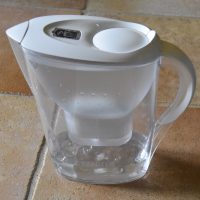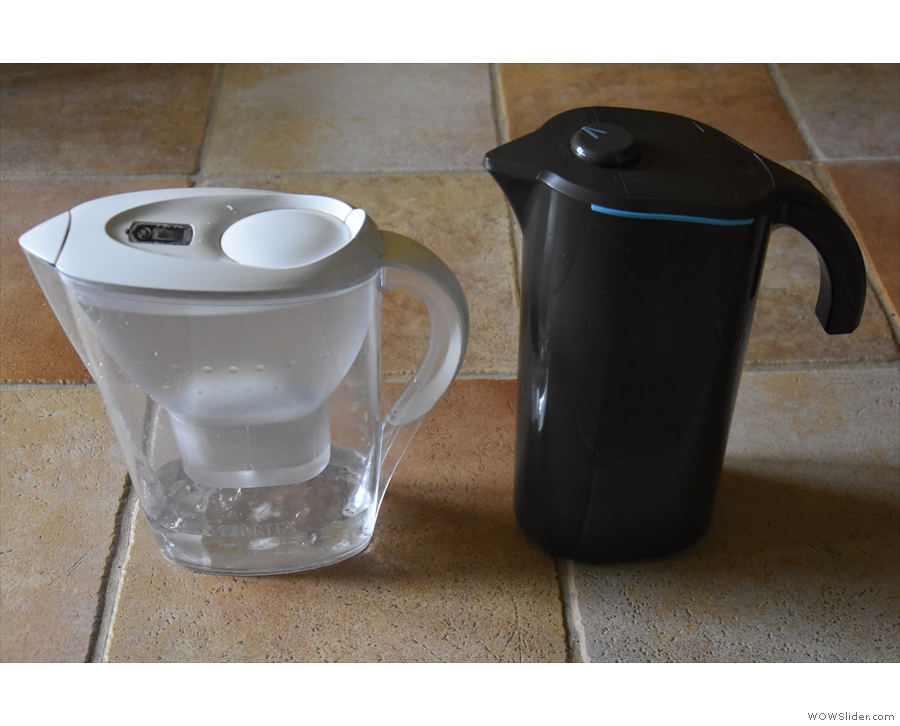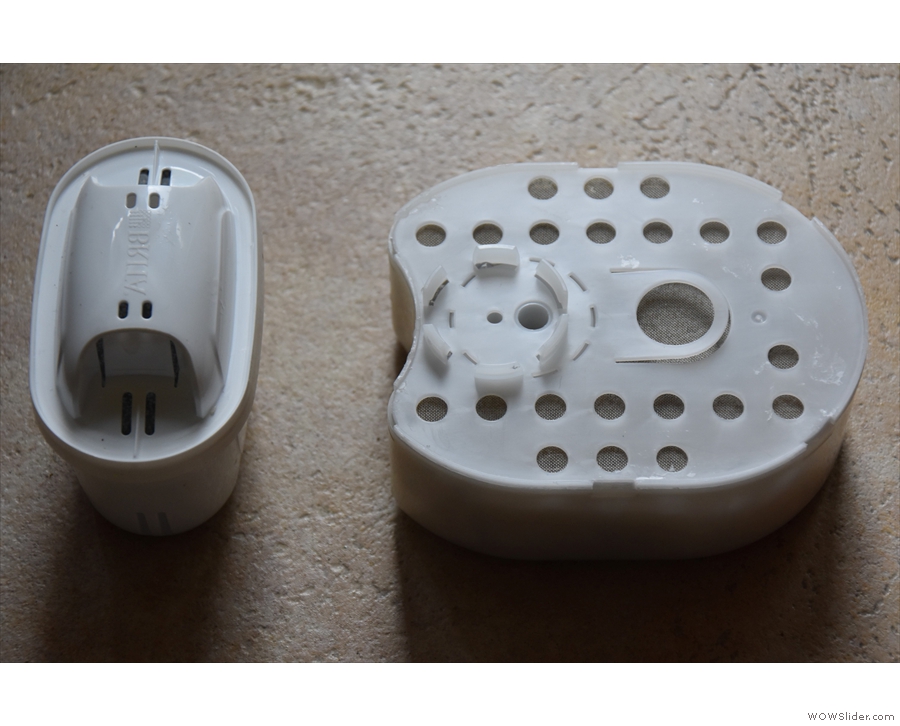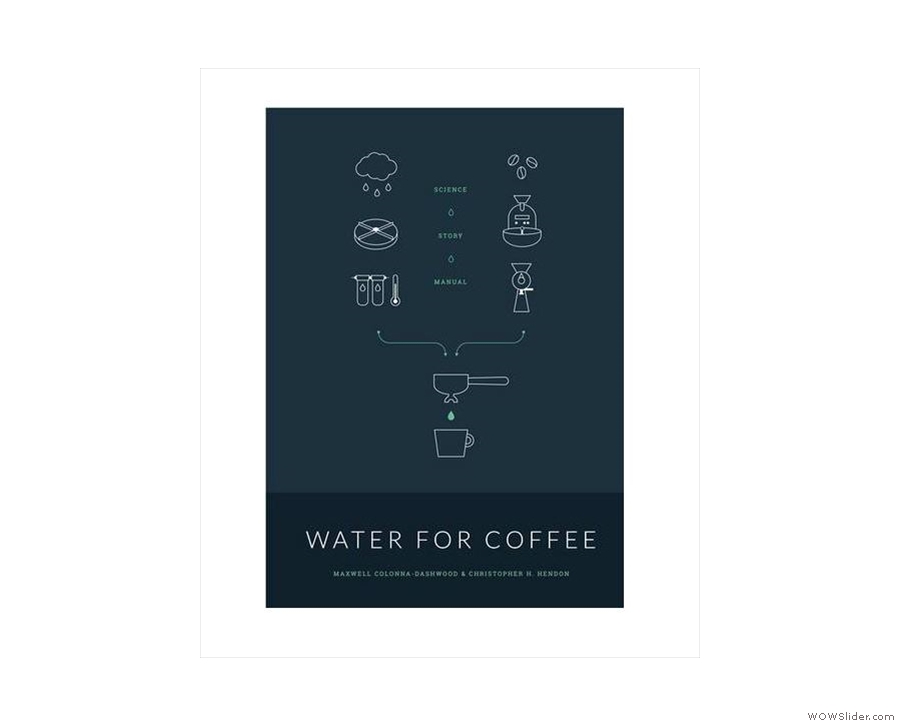 My Making Coffee at Home series is designed to help you make better coffee at home. I’ve written about various coffee brewing methods, discussed the importance of equipment such as grinders and scales, and even talked about the coffee itself. However, there’s one important topic that I haven’t mentioned until now, and that’s water.
My Making Coffee at Home series is designed to help you make better coffee at home. I’ve written about various coffee brewing methods, discussed the importance of equipment such as grinders and scales, and even talked about the coffee itself. However, there’s one important topic that I haven’t mentioned until now, and that’s water.
Given that a cup of coffee contains around 98% water, it seems obvious that it’s important, but it’s often overlooked. Although water quality is pretty good in the developed world (that is, it’s drinkable and won’t make you ill), its chemical composition varies widely. Water contains all sorts of dissolved minerals which affect both its taste and its ability to extract the flavours in coffee.
You might think that distilled water (that is, pure H2O, with no dissolved materials) would be the answer, but it’s not. Distilled water is actually rather poor at extracting coffee: it turns out that minerals such as calcium and magnesium (both common in water), are rather useful in enhancing extraction, while carbonates also play a role. So in today’s Making Coffee at Home, I’m going to look at what makes good water for coffee, and, more importantly, how to get it.
You can read more after the gallery.
Let’s start with tap water. Whether or not your tap water makes good coffee is largely down to where you are in the world, although if you are lucky enough to be making great coffee using water straight out of your tap, this article is probably not for you.
Unfortunately, I’m not one of the fortunate ones. In the two places where I’ve spent the majority of my life, the water’s not great. In Guildford, where I live now, I have hard water. At a simple level, the calcium in the water combines with the carbonates to make limescale. This deposits on metal services causing things like kettles and espresso machines to fur up, which is not good (and was probably responsible for the death of my first espresso machine). The water itself isn’t too bad for making coffee: it just kills my kit!
Flintshire, in North Wales, is where I grew up and where (when there isn’t a global COVID-19 pandemic) I spend a lot of time visiting my Dad. Here, I have the opposite problem: the water is actually quite soft, so there’s no problem with limescale. It also does a good job of extracting coffee, but the water has a prominent metallic taste which then utterly ruins it!
Fortunately, there’s a simple solution to both issues: water filters. I discount bottled water, by the way, since although it can make great coffee, all the affordable mineral water I’m aware of comes in a single-use plastic bottles which I’m not in favour of. However, for the record, most basic supermarket mineral waters have a good chemical composition for making coffee.
Returning to water filters, these vary from simple to complex, and, unsurprisingly, the prices vary too. I use pretty much the simplest solution: a standard, domestic filter jug. You pour tap water in, it passes through a filter cartridge and filtered water comes out the other side. The filter serves two purposes: it softens hard water (which means my kettles and espresso machine at home don’t fur up) and it removes other minerals, such as iron and copper, which affect the taste (which means the coffee at my Dad’s doesn’t taste bad).
The main issue with standard water filters is that they are one-size-fits-all; that is, regardless of the chemical composition of the water, they provide the same amount of filtration. While this isn’t such an issue when it comes to improving the taste, it can be a problem when you have particularly hard or soft water. This is where a more advanced solution, such as the Peak Water filter comes in. Peak Water is designed specifically for brewing coffee and the amount of filtration can be varied depending on the hardness of the water (or, indeed, your own personal preferences). I’ve been using one at home for the last month and you can see what I make of it here.
Going one step further, you can make your own water recipes. Using deionised or distilled water, just add baking soda (carbonates) and Epsom salts (magnesium) to produce the exact chemical balance you want. If you are interested in reading more about this (which is well beyond the level I go to at home), this Barista Hustle article is a good starting point. There is also a product called Barista Water, which has a mineral content formulated specifically for brewing coffee, but I don’t believe it is currently commercially available.
Beyond that, there are various commercial systems which you’ll find in cafés. These are typically based on reverse osmosis (RO for short) technology, which tend to be combined with remineralisation systems to produce the optimal water for coffee brewing. One alternative to producing your own water recipe would be to see if your local coffee shop would be prepared to sell you water from its system. However, I don’t know of any that offer this as standard.
Water for coffee is a complex subject, and I’ve only just scratched the surface. If you want to know more, then James Hoffman has produced an excellent introduction to water for coffee which is well worth watching. For even more detail, the book Water for Coffee by Maxwell Colonna-Dashwood and Christopher Hendon is highly regarded, although I don’t believe it’s currently in print.
If you liked this post, please let me know by clicking the “Like” button. If you have a WordPress account and you don’t mind everyone knowing that you liked this post, you can use the “Like this” button right at the bottom instead. [bawlu_buttons]
Don’t forget that you can share this post with your friends using buttons below.




 1
1 2
2 3
3
You have exceptional spring water on your doorstep.
From Guildford, walk along the River Wey upstream towards Godalming.
You do not have to walk very far, when you come to where the Pilgrim’s Way crosses the River Wey, one upon a time there was a ferry, a stream runs into the Wey.
It is easily missed. If pass under a footbridge and reach a sandy stretch you have walked past the stream.
Collect the water from where it is sourced not where it enters the Wey.
It is ice cold and a delight to drink. Filtered courtesy of the chalk of the North Downs.
What is is like for making coffee I do not know.
The tap water in Guildford is disgusting.
Speciality coffee shops will have reverse osmosis.
A cafe I think not. You will be lucky if they even have a filter.
I was at a coffee shop where too lazy, too mean to change the water. I was warned the coffee not good as not changed the filter for months.
They were also too lazy to clean their espresso machine at night.
But then how many coffee shops do you know where they empty their grinders every evening and store their beans, clean their grinders out with vacuum cleaner, every few days dismantle and clean their grinders?
Buying water from a coffee shop a good idea.
Anyone tried?
In these desperate times coffee shops may be willing to flog some water. It may be all they are selling.
Pingback: Peak Water | Brian's Coffee Spot